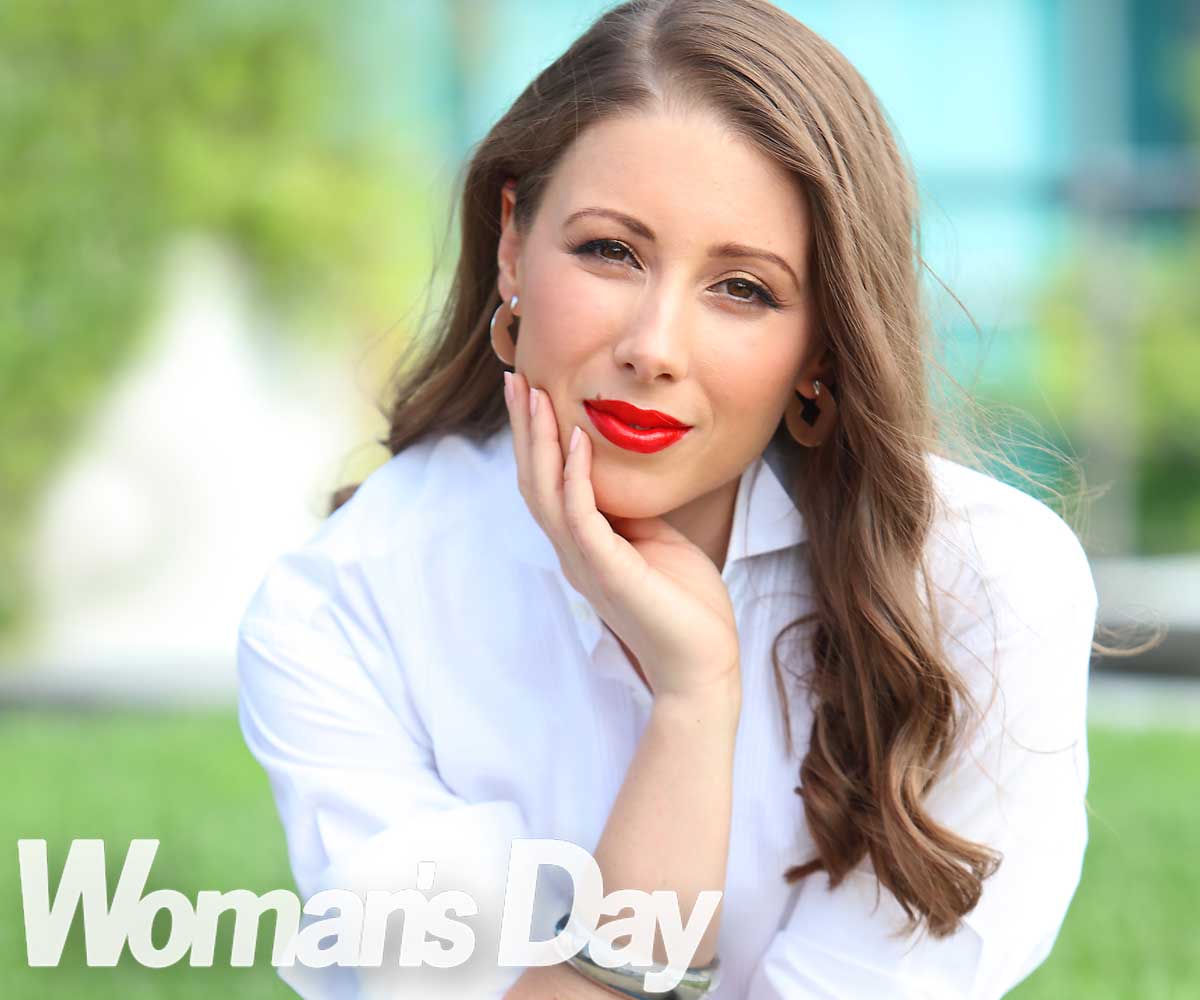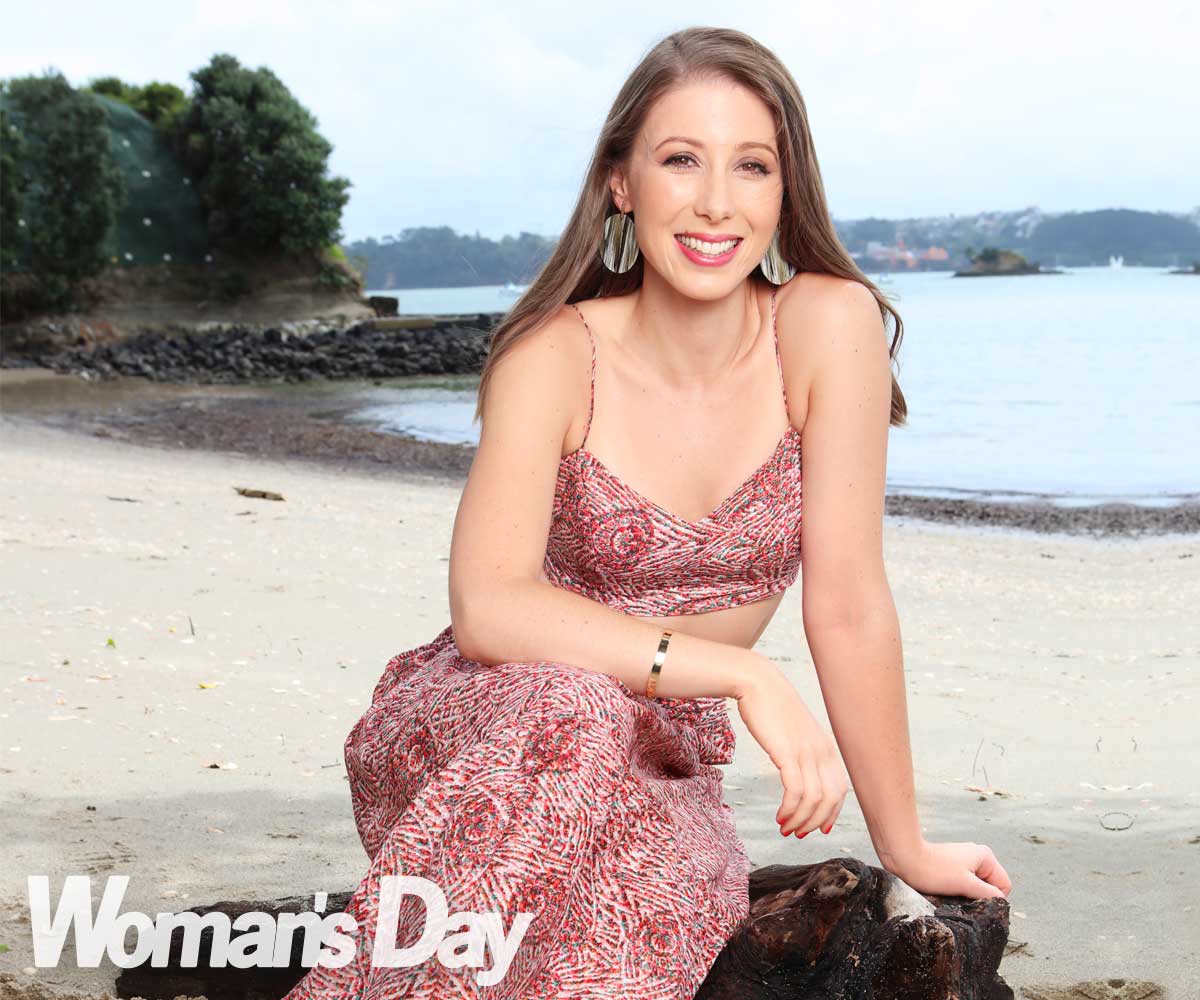Her debut book That F Word is full of candid confessions, surprising revelations and opinions on everything from labiaplasty (don’t do it) to masturbation (do it) to faking orgasms (never!) with plenty of F-bombs thrown in for good measure. But there is one topic Lizzie Marvelly nearly left out.
When the 29-year-old musician-turned-media commentator was in her early 20s, she was sexually assaulted by a “much older woman” who was a friend and colleague.
That attack – and several others by men – contributed to Lizzie falling into depression, culminating in self-harm and suicidal thoughts, from which it took her several years to fully recover.
“Same-sex sexual violence is not talked about very commonly and I think it is important to lift the lid on that,” the Rotorua-born singer tells Woman’s Day over a glass of pinot noir in Auckland.
“But there’s also a lot of horrible old stigmas that link same-sex relationships with abuse, which is why I struggled with whether or not to include it in the book.
“It’s an incredibly rare event. Something like only two percent of offenders are female, but maybe because of its rarity, it’s even more difficult to deal with. So I hope that if there are any women that have experienced it, then my story will help them.
“When it happened to me, I still hadn’t really come to terms with my sexuality. I still identified as straight.”
This is no longer the case. In May, Lizzie came out as bisexual.

The entertainer with UK sensation Paul Potts at the Royal Albert Hall in 2009.
“I started becoming aware of my sexuality in my early 20s,” tells Lizzie, who was once romantically linked to former All Black captain Richie McCaw. “But I didn’t know for sure until I was about 26. Some people were quite surprised, but most of the people close to me knew.”
Back in 2015, she co-founded Villainesse.com, a website for young feminists. She used it as a platform to launch a high-profile media campaign called #MyBodyMyTerms, which raises awareness about sexual consent. Later, she also started an online sex education show for teens titled The Real Sex Talk.
“I’d been thinking about coming out for a while, but it was being nominated for a LGBTQ+ Celebrity Ally award that made me bite the bullet,” Lizzie explains. “I felt really honoured, but I wasn’t an ally – I was a part of the community – and it would have felt disingenuous not to say anything.
“A lot of people think, ‘Oh, it’s 2018 – it’s not a big deal,’ but it is a big deal when it’s you!” she laughs.
The reaction was hugely positive. “I was very, very lucky,” she says. “And very relieved! I definitely had a few sleepless nights in the lead-up.”
Currently single, Lizzie insists she’ll keep any future relationships private “because I’m very mindful that the people in my personal life haven’t chosen to be in the public eye”.
And while the columnist herself is refreshingly open, Lizzie – who has Te Arawa heritage but grew up Pakeha – admits it makes her a prime target for internet trolls, with haters frequently attacking her physical appearance, accusing her of being “a Tupperware European Maori” and even wishing her death.
“I have my own ways of coping, but the important thing is to ask for help if you need it,” she says.

The act of “stealthing” – when a man removes a condom during sex without his partner’s knowledge or consent – is tackled frankly in That F Word, with Lizzie sharing an incident from her early 20s. “I didn’t even realise what had happened to me was a crime until I was 27. But I remember being angry and upset for a long time.”
Being “stroppy”, she reckons, has always been part of her make-up. It’s just that back in her teen years – when she was a “popera princess” and self-described “insufferable overachiever” with the high-school nickname Little Miss Perfect – she hid it much better.
Despite a mostly miserable experience as a scholarship student at prestigious Auckland private school King’s College, her music career continued to flourish and she went from travelling New Zealand with classical greats Dame Malvina Major and Sir Howard Morrison, to touring the world with Britain’s Got Talent winner Paul Potts.
But years of “having the tongues of older industry men shoved down my throat” and being touched inappropriately – sometimes in full view of others – all helped shape her new direction and her desire to speak out. Ultimately, she forged a new career path after the casual abuse.
Only recently, in 2014, Lizzie recalls a female acquaintance telling her to “laugh it off” when she confided she was being assaulted by a male music industry veteran as they all sat together at a glitzy awards ceremony after-party.
“That comment really haunted me, but I doubt the woman who said it can even remember,” she tells.
“Writing about all of these different incidents helped me make sense of it all. It was quite freeing to go, ‘This is what happened to me – it’s not my fault.’ I suspect these experiences happen to a lot of women.”
Despite her misgivings about the music industry, Lizzie still occasionally sings the national anthem at rugby test matches in NZ and abroad.
But these days, it’s public speaking, charity work, writing newspaper columns, running her website and penning her book that have been keeping her busy. She’s currently making a documentary for Maori TV.
“There’s so many inspiring Maori women whose stories have never been told – women like Meri Te Tai Mangakahia and Niniwa-i-te-rangi. It’s my first documentary, so it’s a huge learning curve. In fact,” she grins, “the past few years there have held a lot of firsts for me …”


